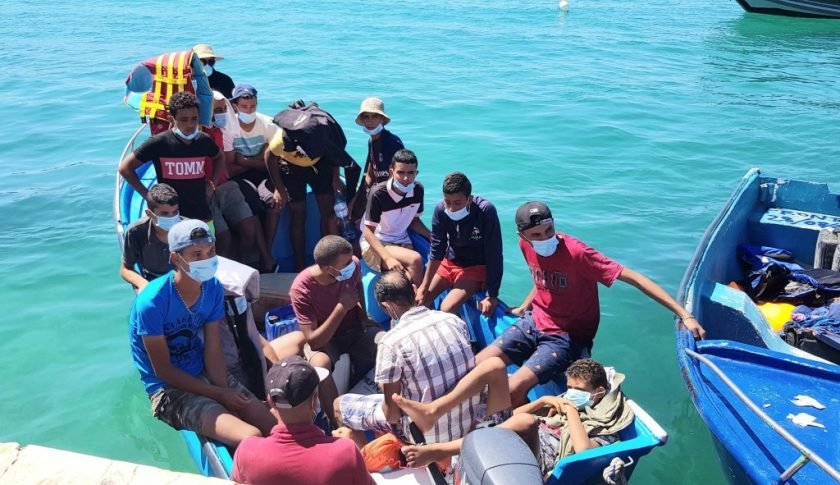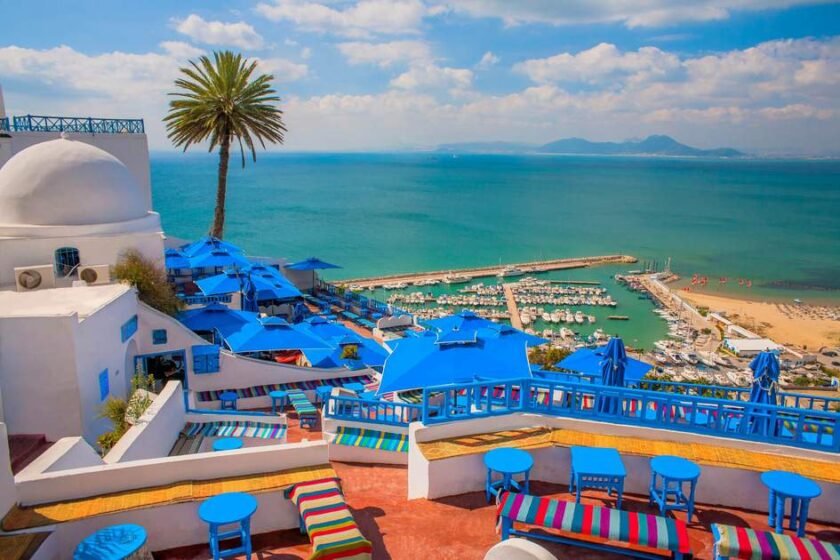In a country where innovation is often concentrated in the capital, Tunisia’s first regional roadshow on innovative startups and SME financing marks a new chapter in inclusive entrepreneurship. For the first time, the national startup ecosystem left Tunis behind and traveled across the country—north, center, south, and southeast—to meet entrepreneurs where they are. The roadshow made stops in Bizerte, Kairouan, Sfax, and Gabès, connecting with entrepreneurs, incubators, investors, and support organizations. A national recap event in Tunis concluded the regional outreach on February 25th, 2025, featuring a press roundtable to amplify regional voices and insights gathered along the way.
The 2025 roadshow is part of the $75 million dollar World Bank financed Tunisia Innovative Startups and SME Project (Tunisia iSME Project) and was organized by the Caisse des depots et consignations (CDC), the project implementing entity, and Smart Capital, the partner tasked with implementation of Tunisia Startup program.
The Project focuses on startups and innovative SMEs with high growth potential, and therefore with the most prospects for job creation, while nurturing the entrepreneurship ecosystem, such as venture capital funds, incubators, accelerators, and co-working spaces.
Efforts were made through the Project centers on mobilizing additional investment through private sector funds and partners to target innovative startups and SMEs. An additional US$47 million in private capital was mobilized thus far through the Project equity financing instruments (Anava, InnovaTech).
– Ecosystem support activities under the “Flywheel” initiative have reached 168 startups and support organizations (SSOs) with grants, however, figures 1 and 2 show most beneficiaries are located in Tunis.
 |  |
| Figure 1- Distribution of startup beneficiaries of Proof of Concept support by region- source Smart Capital (2025) | Figure 2- Distribution of startup beneficiaries of Investment Readiness Grants by region – source Smart Capital (2025) |
The goal of the startup roadshow was not only to promote the ISME Project and other national innovation programs but also to proactively reach out and build trust, listen, and understand the unique challenges and opportunities faced by entrepreneurs outside Tunis. The four-city tour allowed private sector participants and government stakeholders to get a first-hand view of the diversity of Tunisia’s innovation landscape—and of the growing appetite for entrepreneurship across regions.
Many participants highlighted that this was the first time national stakeholders had come to listen, not just speak. And this shift—from centralization to collaboration—was deeply appreciated.
Throughout the journey, over 247 participants joined the events, including 105 startups and SMEs and 37 SSOs. The presence of four major child funds—TITAN, Go Live, Flat6Labs, and 216 Capital—helped demystify the investment landscape and provided an open forum for startups to ask questions directly.
The data gathered during the roadshow tells a compelling story. While 36% of participants were most interested in financing mechanisms, others emphasized the need for strategic mentorship, networking, and market access.
Nearly 40% of participants expressed interest in multi-dimensional support—blending financing with technical guidance and connection to networks. This reflects a more mature entrepreneurial mindset and a strong demand for ecosystems that do more than fund—they empower.
Four standout supporting organizations (SSOs)—CBA (Bizerte), Go To Market (Kairouan), iCUBE (Sfax), and COZI (Gabès)—expressed readiness to serve as regional anchors for innovation. Regional anchors could play a strategic role in building local deal flows, mentoring early-stage startups, and connecting them to national programs.
Several policy recommendations emerged from the roadshow:
- The need for more region-specific communication. Entrepreneurs and support organizations in Bizerte or Kairouan don’t always have access to the same information as those in Tunis.
- Financing tools need to adapt to the realities of early-stage ventures across regions. Startups in Sfax or Gabès often lack the networks or collateral required to access existing funds.
- Regional technopoles need to be activated, not just built. Infrastructure alone is not enough; they need resources, talent, and visibility.
- As the potential for innovation is everywhere, but opportunity is not, bridging that gap requires more than a single visit. It demands consistent engagement, new instruments, and the political will to design truly inclusive innovation policies.
Tunisia’s startup ecosystem is at an inflection point. National policies like the Startup Act have paved the way for a thriving community of entrepreneurs. At the same time, connecting these policies to the regions—where needs and opportunities are equally strong—offers a key opportunity to promote more balanced and inclusive development.
Further supporting entrepreneurship beyond Tunis can help Tunisia become a bigger and more attractive market for investors and thereby have catalytic impacts on access to finance, innovation, productivity, growth and job creation. The regional roadshow has been an important step in reversing that trend.
TunisianMonitorOnline (NejiMed-WB)




